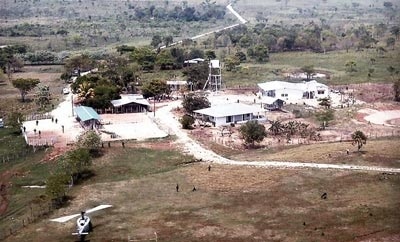A Guatemalan court ruled that a farm seized from an alleged drug trafficker should go to the state, the first such decision under a 2010 law that allows the government to use criminals’ assets to fight crime.
The Asset Seizure Court ruled on January 25 to confiscate a farm from Raymundo Fernando Rodriguez Pacay, who is accused of drug trafficking, according to a statement from the Public Ministry.
A large quantity of cocaine was found during an April 2011 raid on the 53,000 square meter property, located in Guanagazapa, Escuintla province, southern Guatemala.
Judge Marco Antonio Villeda found that the property had been purchased with the profits of criminal activity related to the drug trade, and granted the Public Ministry’s request for it to be handed over to the state.
This is the first time that the court has ordered property confiscated from a suspected criminal in favor of the state — previous rulings have involved only the transfer of money.
InSight Crime Analysis
A law allowing the state to use assets seized from criminals was passed by Guatemala’s Congress in December 2010, and the Unit of Asset Seizures was created in July 2011, as part of the Anti-Money Laundering Prosecutor’s Office. Under the terms of the law, assets seized from criminals can be used to pay for the fight against crime, including police training and equipment, and witness protection programs.
Between the opening of the unit and the start of Rodriguez’s trial in November, some $19 million dollars, 1 million quetzales ($125,000), 17 vehicles, various firearms and other goods were seized, according to Siglo 21. The money has been divided between various state bodies.
Other countries in the region, including Colombia, already have systems in place that allow criminal assets to be funneled back into law enforcement. Using criminal assets to pay for the fight against crime will be especially useful for a country like Guatemala, where resources for law enforcement are short, and there are criminal groups with massive holdings of land and property. The recent ruling is a sign that the courts have the will to move ahead in applying this law.

